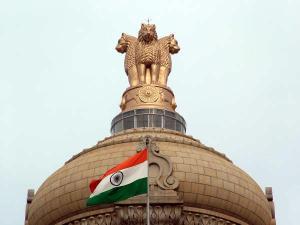 New Delhi: Indian gay rights activists are nervous and concerned about the country’s new government that was sworn in May 26 for fear that it may not reverse the current ban on same-sex relations.
New Delhi: Indian gay rights activists are nervous and concerned about the country’s new government that was sworn in May 26 for fear that it may not reverse the current ban on same-sex relations.
This is because the new government is that of the rightwing Bharatiya Janata Party (BJP, Indian peoples party) that champions the draconian British era colonial anti-gay Section 377 law and opposes any move to nullify the Supreme Court’s re-criminalizing consensual same-sex relations.
In January the Supreme Court dismissed a plea by the former federal government for reviewing its overarching verdict but a new bench has now agreed to re-examine that decision.
“There is heightened concern over the issue but, legally speaking, since the Supreme Court has maintained that it will hear the petition, the government has to make its stand clear in court (and say) they disagree with the previous government’s stand,” Tripti Tadon of Lawyer’s Collective that represented the gay community told telegraphindia.com.
The Supreme Court past December upheld the validity of Section 377, reversing the 2009 Delhi’s high court ruling that decriminalized it and gave the gay community broad protections and rights.
But the BJP said it would not scrap Section 377 that defines same-sex relations as “unnatural” and punishable by up to life imprisonment.
BJP party chief Rajnath Singh and now India’s internal security minister has said that “Gay sex is not natural and we cannot support something which is unnatural.”
The BJP, till now the main opposition party, has won a majority in parliament, trouncing the ruling Congress party that had promised to amend the law to ensure consensual same-sex relations are not criminalized.
“This is definitely a setback for us as we now have to convince a new set of politicians to address the issue. (It) would have been much easier with the previous government as they seemed to be on our side,” said activist-lawyer Debojyoti Ghosh.
Narendra Modi, the social-media savvy BJP leader and now India’s new prime minister has remained silent on gay rights but sources say his stand is unlikely to be different given that as a BJP member, he is bound to uphold its anti-gay stance.
“The previous government had told the Supreme Court in 2013 that Section 377 was not a reflection of existing Indian values and traditions and had been imposed upon Indian society by colonizers. We urge the new government to uphold this position,” said Shashikumar Velath, program director, Amnesty International India.
Estimates say there are at least 40-60 million gay people in India but anecdotal suggestion that one in 10 people are gay puts the figure even higher, at around 120 million people in India.
Source: telegraphindia.com
